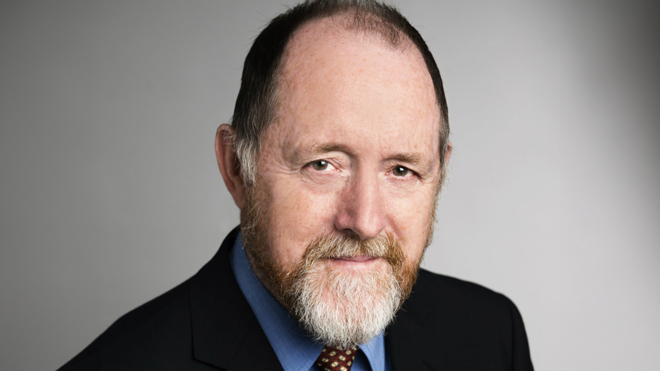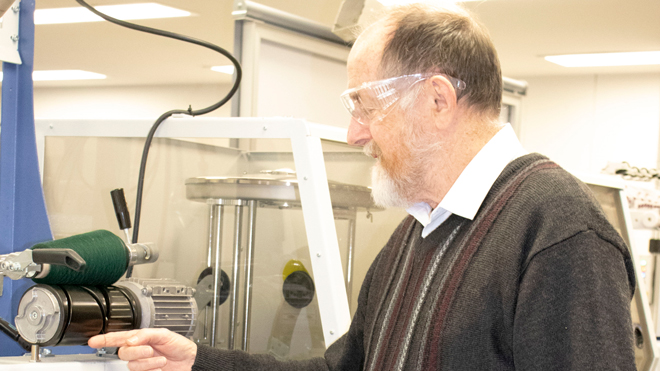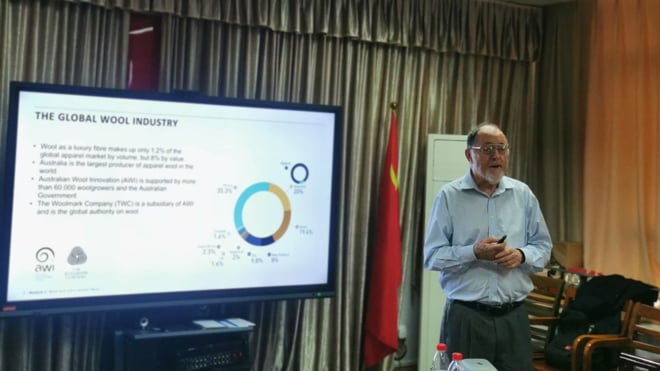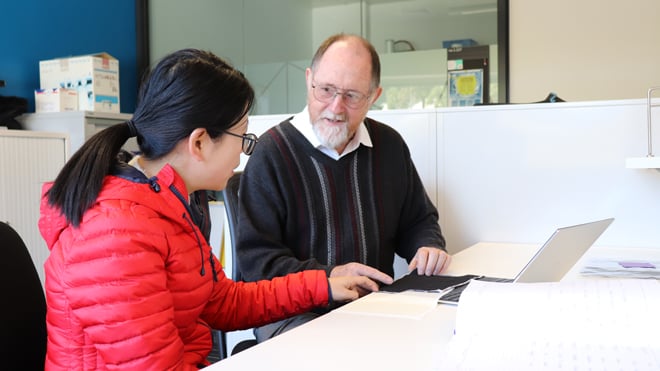Dr Allan De Boos – a lifetime with wool

Recently retired, Dr Allan De Boos has worked in the wool industry for his whole career, including with AWI for more than 20 years. He has a lifetime of wool knowledge with expertise in fabric and garment manufacture, fibre science and tertiary education.
Dr Allan De Boos recently retired from AWI having spent more than 20 years with the company. He is highly regarded throughout the global wool industry for his in depth knowledge of wool – from the technical attributes of the wool fibre itself, through the textile manufacturing supply chain to the final garment.
While most of his career was spent in textiles, he was very mindful of the on-farm source of wool and the hard work that Australian woolgrowers put into growing their premium fibre.
Dr De Boos began his education in textiles at the University of NSW where he earned a Bachelor of Science degree in Textile Technology – Chemistry in 1967. At the beginning of 1968, he joined CSIRO as a research scientist where he was involved initially in research into the machine washability of wool garments and then the finishing of wool and blend fabrics. In his early years at CSIRO, he also completed a PhD at the Victoria University of Manchester (Department of Chemical Physics).
While employed at the CSIRO Division of Wool Technology, he worked closely with wool fabric and garment manufacturers, assisting them to use objective measurement in problem solving and to improve fabric quality. He contributed significantly to the exploitation of SiroFAST and other systems that measure the mechanical and dimensional properties of fabric that can be used to predict performance in garment manufacture and the appearance of the garments during wear.
During his time with CSIRO, Dr De Boos had three periods of secondment to work with research institutes and industry in Europe: at the Deutsches Wollforschungsinstitut (DWI) in Aachen, Germany; at the International Wool Secretariat based at the Ilkley Development Centre in the UK; and at Consiglio Nazionale delle Ricerche, Istituto di Ricerche e Sperimentazione Laniera ‘O. Rivetti’ at Biella in Italy.
After 34 years at CSIRO, Dr De Boos in 2002 joined AWI where he worked as a project and program manager in various areas, including management of the fundamental wool research program and as Woolmark technical manager.
From 2014 until his retirement, Dr De Boos was responsible for the development and delivery of the Woolmark Wool Science and Technology program, courses from which he delivered on site at universities and colleges in China and India. In this role, he was appointed a ‘Distinguished Professor’ at Yantai-Nanshan university in Shandong province. With most Australian wool processed overseas, mainly in China, it is in the interest of Australian woolgrowers that the people who work with it there understand all about its attributes and the technology used to process it.
Dr Allan De Boos during his time working with AWI.
Dr De Boos also served for a number of years as chairman of the Technology and Standards Committee of the IWTO.
He is the author (or co-author) of more than 100 reviews, research and conference papers in the fields of wool fabric finishing and fabric objective measurement.
“Allan is highly respected amongst his colleagues and the wool supply chain for his knowledge and broad skill set that he has acquired during the past 60 years,” said AWI CEO, John Roberts.
“He has always been a committed and conscientious professional, benefiting Australian woolgrowers and the whole industry.
“Despite Allan’s decision to reduce his workload and retire from AWI, he has committed to remaining accessible in the background offering his expertise and advice as needed. This dedication stems from his lifelong passion for wool and his ongoing commitment to educating future generations.
“He has been a credit to the Australian wool industry, and I thank him for his long and productive career in wool.”
This article appeared in the June 2024 edition of AWI’s Beyond the Bale magazine. Reproduction of the article is encouraged.















